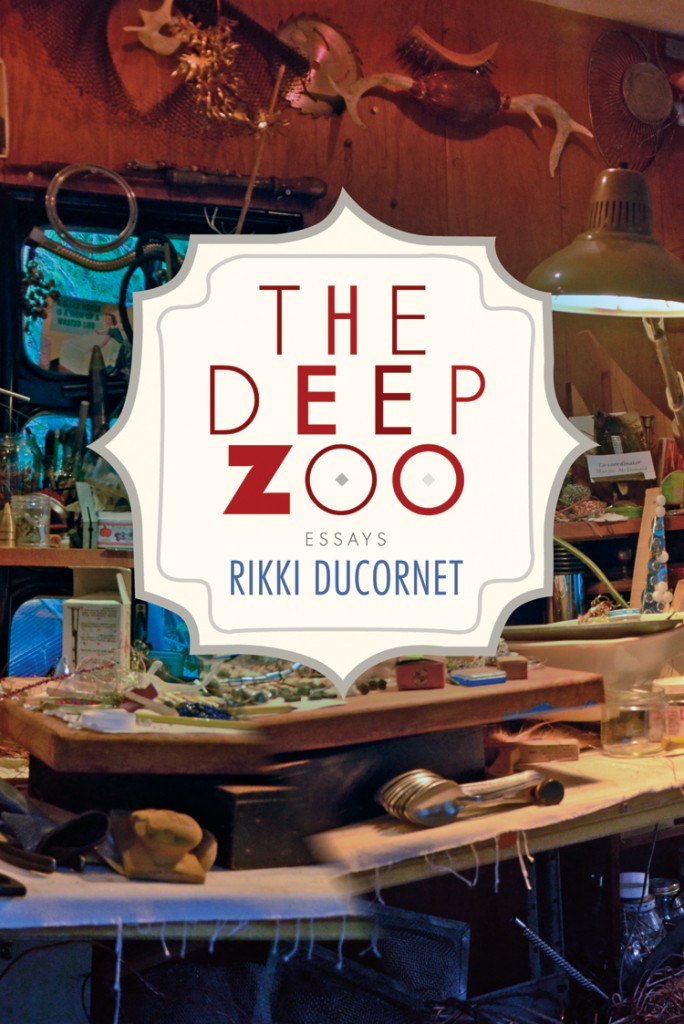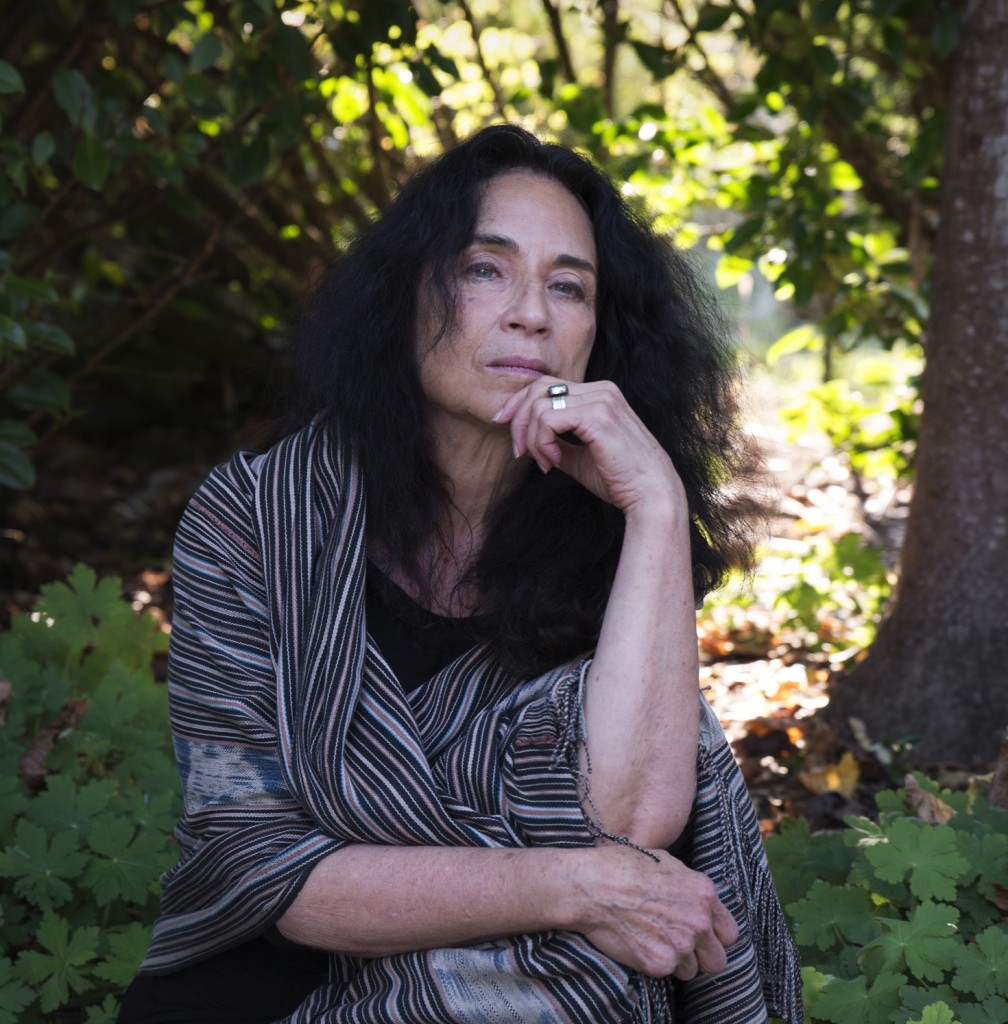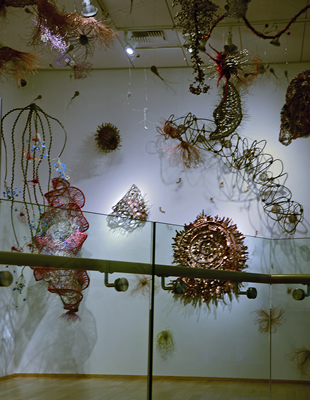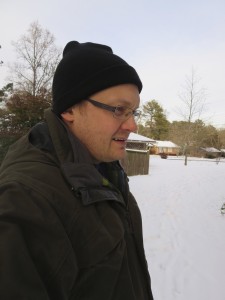Subversive at heart and acutely perceptive, The Deep Zoo celebrates the knowledge that “Nature loves order, the beautiful, and the anomalous.” It plies us to savor the spiritual and the scatological, and not to wither in moral certitude. —Jason DeYoung

The Deep Zoo
Rikki Ducornet
Coffee House Press, 2015
119 pages, $15.95
ISBN: 978-1566893763
.
The Deep Zoo is a seed! From this seed come our initial impulses and multiplicities. Our Deep Zoo is the place from which we dream. It is this place from which you came, the place from which you interpret the world, the place from which you create. As Gaston Bachelard, Rikki Ducornet’s favored philosopher, says, “daydreams illuminate the synthesis of immemorial and recollected. In this remote region, memory and imagination remain associated, each one working from their mutual deepening.” The Deep Zoo galvanizes us. It is potency.
The author of nine novels, three short story collections, five works of poetry, and the winner of countless awards, Rikki Ducornet has long been a star shining brightly over contemporary literature. Her writing, however, often runs counters to its trends. Refusing to be part of established realism—which she skewers for its “inescapable redundancies”—she looks for something more inward, an art that fulfills the promise and richness of the imagination. Much like Robert Coover (whom she notes as influential) Ducornet’s preoccupations are mythology and metamorphosis, and it is this richness and delight in play (an art in-and-of itself) that attracts me to her work. (Rikki Ducornet is also an accomplished painter to boot and shows internationally.)
The daughter of a Bard College professor, with extensive travels throughout the world, including Algeria, Japan, France, and Palestine, she is steeped in worldly texts and to call her an American writer seems nearly inaccurate. The depth of her knowledge and comfort with diverse subject matter is daunting, and in The Deep Zoo alone she deals with Egyptian mythology, Werner Herzog, United States foreign policy, Marquis de Sade, and Islam among others. The opening words of The Deep Zoo might well-convey the wonder and direction of this slim volume:
In the tradition of Islam, the first word that was revealed to Mohammed was Igrá (Read!) The world is a translation of the divine, and its manifestation. To write a text is to propose a reading of the world and to reveal its potencies. Writing is reading and reading a way back to the initial impulse. Both are acts of revelation.
Comprised of fifteen essays, most of which are no more than six or seven pages long, the entire text of The Deep Zoo runs only 119 pages—work cited and acknowledgements included. But while its page count is trim its capacity for insights and range of thought between its cover is sprawling.
The collection leads with its title essay, limning Ducornet’s philosophical point-of-view toward art and literature. “The Deep Zoo” acts as a kind of foundational text, a lens to view her work and the other essays through. She writes that the Deep Zoo is a way of seeing, “the recognition of a pattern that informs the mind.” From this arena of unlimited encounters come the artist’s vision, the writer’s text. Ducornet believes in the power of language to clarify, to articulate the ineffable—its most ancient task. A writer’s duty is to “access memory, reverie, and the unconscious—its powers, beauties, terrors, and perhaps above all, its rule-breaking intuitions, and to celebrate … the mind’s longing to become lighter, free of the weight of received ideas and gravity-bound redundancies.” Often her rapturous prose leads to some heady moments.
Although the essay trades in concepts that might seem somewhat abstract, the following essays reveal what Ducornet means by Deep Zoo through examples. She explores the “mixto” paintings of Linda Okazaki and the restless sculpture of Margie McDonald. She finds ineluctable life in the flickering imagery of Werner Herzog’s The Enigma of Kaspar Hauser, and delights in the gnostic vision of David Lynch. With her keen eye for the amalgamated and strange, she takes great care to highlight works awash in estrangement. In each piece of art work she analyzes, she looks for the emblematic seed, the forces which “fall into sympathy with one another,” which engenders the work, often finding them in “intangible things,” such as in Omensetter’s Luck, or in the singular “banality” of death in de Sade’s 120 Days of Sodom.
Many of the essays in The Deep Zoo recount stories of Ducornet youth, where ones Deep Zoo originates. She traces her own Deep Zoo back to a dead fox she found in the woods when she was a girl; a swarm of yellow bees around its belly. She calls this “a species of animated calligraphy”; it transformed what otherwise might have seemed horrible into a thing of beauty. In other essays, she describes more practical matters to her art. In “Water and Dreams,” Ducornet gives her clearest view into the workings of her mind and writing. Originally written for Rule of Thumb (ed. by Michael Martone), it is an analysis of her novel The Fountains of Neptune. Here Ducornet dismantles the work to spotlight the rhythms and currents running through it: a demonstration of the mechanics of the Deep Zoo. She writes that The Fountains of Neptune “is punctuated by the water’s meteoric forms… consciously associated in order to suggest the many moods of the sea.” Before writing it, she says she made lists of water and sea images, but during the process of writing, she allowed the novel’s “intention [to] evolve from within,” so “the entire process had a weather of its own.”
No, Ducornet’s advice isn’t as brusquely pragmatic as ‘write what you know’—I doubt she’d send you chasing your own tail like that. Instead, her advice is far more freeing. Subversive at heart and acutely perceptive, The Deep Zoo celebrates the knowledge that “Nature loves order, the beautiful, and the anomalous.” It plies us to savor the spiritual and the scatological, and not to wither in moral certitude. Indeed, it accomplishes what the best books I’ve read always do. It opens its reader to new concepts and stirs new ways of thinking. As Ducornet has the Marquis de Sade say in her novel The Fan-Maker’s Inquisition: “What is reading if it is not dreaming? The best books cause us to dream; the rest are not worth reading.”
Taken with and obsessed by the paradoxical and the mysterious, Ducornet’s honors the mutable heart of life, refuses to label the body as “fallen” or “vile,” and clearly worships the “divine.” Yet her outlook is clear-eyed and scientific, too. She won’t abide magical thinking or a good wallow in obscurity. At once a political book The Deep Zoo is also playful, as the essays do not follow any preordained structure and seem often to move with the currents of their author’s mind. One of the intriguing features of Ducornet’s essays is that they often end with smart quotations from writers she admires. But in fact, she has written a very quotable book herself, and I want to conclude here by sharing some of Ducornet’s own wise words:
It is the hidden significance of things that both explains and propels us forward with an eager intelligence. The paradox of hidden knowledge is that it recognizes—in ways that are wordless and intimate—an embrace as old as time, older than language. And yet it is also the force that leads to the impulse of word-making.
§
If naming and listing leads to a certain disarticulation of the world, it also articulates the experience of the ineffable; it allows us to consider and articulate causes and effects and even to cherish the anomalous, because when known patterns are disrupted, we are forced to consider (and to reconsider) the meanings of things.
§
I think of a novel as an unfolding landscape, an entire country waiting to be deciphered.
§
The creative impulse, Eros breathing and dreaming within us, is radical to the core.
§
The human imagination poses searching riddles, and the moment it does, poetry and science, philosophy and cosmology are born.
§
Hating and fearing the body, we turn away from knowledge of the other
§
Thankfully, art pays no attention and continues to subvert pieties and expectations, to rile fuddy-duddies and ride a brighter air.
§
A world worth wanting cherishes the risks of wildness.
—Jason DeYoung
g
Jason DeYoung lives in Atlanta, Georgia. His work has appeared or is forthcoming in numerous publications, including Booth, REAL: Regarding Arts & Letters, Corium, The Austin Review (web), The Los Angeles Review, New Orleans Review, Monkeybicycle, Music & Literature (web), and Houghton Mifflin Harcourt’s Best American Mystery Stories 2012. He is a Senior Editor at Numéro Cinq Magazine.
/
/



